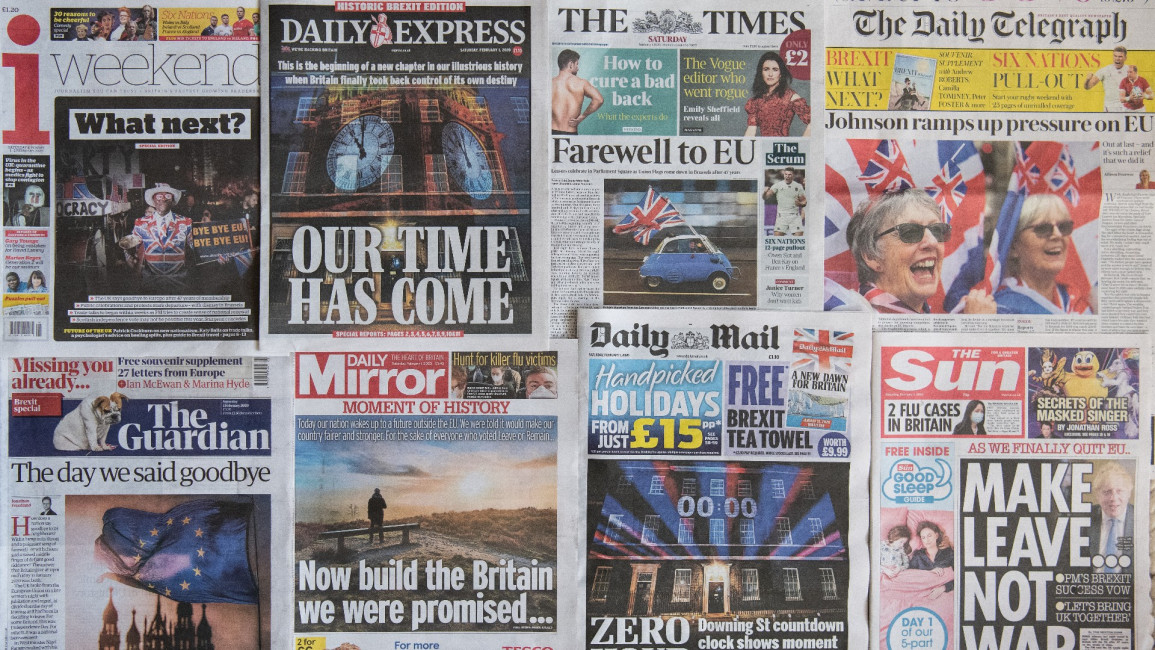Follow us on Facebook, Twitter and Instagram to stay connected
UK press regulator releases new guidelines on reporting about Muslims to 'prevent maligning communities'
UK press regulator releases new guidelines on reporting about Muslims to 'prevent maligning communities'
British publications have been given new guidelines on how to report on Muslims.
2 min read
British publications have been given new guidelines [Getty]
New guidance which seeks to prevent British newspapers from reporting on Muslims and Islam in a disproportionately negative way has been released by the press regulator the Independent Press Standards Association (IPSO).
The guidelines, which are followed by most national and local publications, have been planned for two years and encourages journalists to avoid "conjecture that maligns whole communities", and to avoid making "pejorative or prejudicial remarks about an individual on the basis of their religion".
There were also warnings to editors that said Muslims are "not a monolithic community".
"There exist a number of generalisations and stereotypes in British society, including around Islam and Muslims," they state.
"While the Code does not prohibit the use of generalisations within coverage, it does require that journalists draw a distinction between comment, conjecture and fact in their reporting. Journalists should take care that stereotypes do not feature in factual coverage so as to uphold this distinction."
The guidelines have been welcomed by the Muslim community in the UK.
This news comes amid a rise in Islamophobia and hate crimes against Muslims in the UK.
Between January 2017 and December 2019, 12 out of 398 investigated complaints related to coverage of Muslims and Islam were upheld by IPSO as a breach of the Editor's Code.
The Express website, Mail Online, Daily Mail and Times committed two breaches each in that period, while the Sunday Times, Daily Star online, Spectator and Sun had one each.
"I strongly believe that any faith or ideology must be open to critique and that opinions by writers in publications should be protected," Fiyaz Mughal, founder of campaign groups Tell Mama and Faith Matters told Press Gazette.
"This means negative or derogatory opinions around faiths must be protected for publication, however much those views are disagreed with.
"However, on issues of fact that do not have anything to do with Muslims and Islam and which are woven into stories and conjecture that maligns whole communities so that it promotes discriminatory views about them, this document makes clear that there are important guidelines that should be followed."
The guidelines, which are followed by most national and local publications, have been planned for two years and encourages journalists to avoid "conjecture that maligns whole communities", and to avoid making "pejorative or prejudicial remarks about an individual on the basis of their religion".
There were also warnings to editors that said Muslims are "not a monolithic community".
"There exist a number of generalisations and stereotypes in British society, including around Islam and Muslims," they state.
"While the Code does not prohibit the use of generalisations within coverage, it does require that journalists draw a distinction between comment, conjecture and fact in their reporting. Journalists should take care that stereotypes do not feature in factual coverage so as to uphold this distinction."
The guidelines have been welcomed by the Muslim community in the UK.
|
This news comes amid a rise in Islamophobia and hate crimes against Muslims in the UK.
Between January 2017 and December 2019, 12 out of 398 investigated complaints related to coverage of Muslims and Islam were upheld by IPSO as a breach of the Editor's Code.
The Express website, Mail Online, Daily Mail and Times committed two breaches each in that period, while the Sunday Times, Daily Star online, Spectator and Sun had one each.
"I strongly believe that any faith or ideology must be open to critique and that opinions by writers in publications should be protected," Fiyaz Mughal, founder of campaign groups Tell Mama and Faith Matters told Press Gazette.
"This means negative or derogatory opinions around faiths must be protected for publication, however much those views are disagreed with.
"However, on issues of fact that do not have anything to do with Muslims and Islam and which are woven into stories and conjecture that maligns whole communities so that it promotes discriminatory views about them, this document makes clear that there are important guidelines that should be followed."



